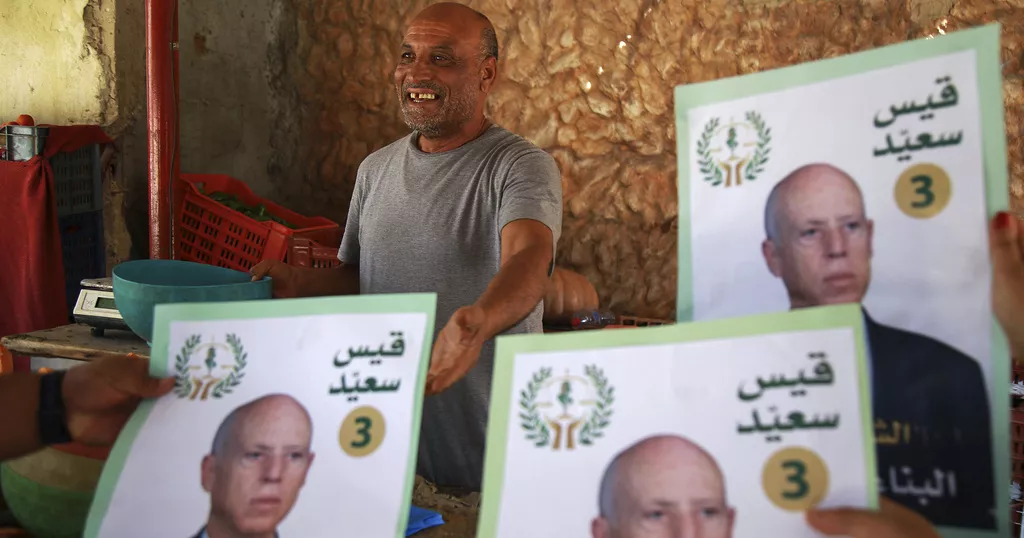As Tunisia prepares for its presidential election on October 6, President Kais Saied appears to have a clear path to re-election. With most of his major opponents either imprisoned or excluded from the ballot, Saied’s position seems increasingly secure five years after he first ascended to power amid widespread anti-establishment sentiments.
This election marks Tunisia’s third presidential contest since the 2011 protests that led to the ousting of President Zine El Abidine Ben Ali—the first autocrat to fall during the Arab Spring uprisings that swept through several North African and Middle Eastern nations. These earlier elections received commendations from international observers, who noted their adherence to democratic norms. However, this year’s electoral landscape has raised significant concerns.
Recent actions by Saied and an election authority appointed by him have sparked skepticism regarding the fairness and integrity of the upcoming vote. Many opposition parties have opted to boycott the election, citing a climate that is increasingly hostile to dissent and political plurality. This backdrop leads to pressing questions about Tunisia’s political future.
Michael Ayari, a Senior Analyst for Algeria and Tunisia at the International Crisis Group, articulated some of these concerns in a statement to the Associated Press. He pondered the long-term implications of Saied’s presidency: “Will Saied’s rule last forever? Is it possible to change the political system in a peaceful way? Or are Tunisians condemned to have a president who will stay in power for 30 years, implementing his agenda and leading the country into further authoritarianism?”
Despite these doubts, Saied does maintain a loyal base of supporters who view this election as a pivotal opportunity. They believe it could solidify Saied’s authority and facilitate his vision for Tunisia, which he claims includes liberating the country from perceived Western dominance. This narrative has resonated with segments of the population that feel disenchanted with traditional political elites and foreign influences.
Under Saied’s leadership, Tunisia has not only preserved its historical alliances with Western nations but has also sought to expand its international partnerships. Notably, Tunisia and Iran have recently lifted visa requirements for each other’s citizens and announced plans to enhance trade relations. Additionally, Tunisia has accepted substantial loans as part of China’s Belt and Road Initiative, which aims to finance infrastructure projects such as hospitals, stadiums, and ports.
These foreign policy moves signify a potential shift in Tunisia’s geopolitical stance, showcasing Saied’s intent to diversify the country’s alliances beyond the West. However, the implications of these changes remain to be seen, especially in terms of their impact on domestic politics and public sentiment.
As the election date approaches, many are closely watching how Saied’s administration will navigate the complexities of governance in a climate marked by division and unrest. The outcome of this election could significantly influence not only the political landscape of Tunisia but also its social and economic future. The question remains whether Saied’s vision can translate into tangible benefits for a populace that continues to grapple with economic challenges and political disillusionment.
With a largely compliant electoral process and a weakened opposition, the president may find it easier to implement his policies without significant pushback. However, the long-term sustainability of his rule will depend on his ability to address the underlying issues that have historically fueled discontent among Tunisians.
As Tunisia stands at a crossroads, the October 6 election will be more than just a vote; it will serve as a litmus test for the country’s democratic aspirations and the resilience of its political institutions. Whether Saied can indeed secure a second term amid these challenges will shape the narrative of Tunisia’s post-revolutionary journey and its quest for a stable and equitable governance structure.









